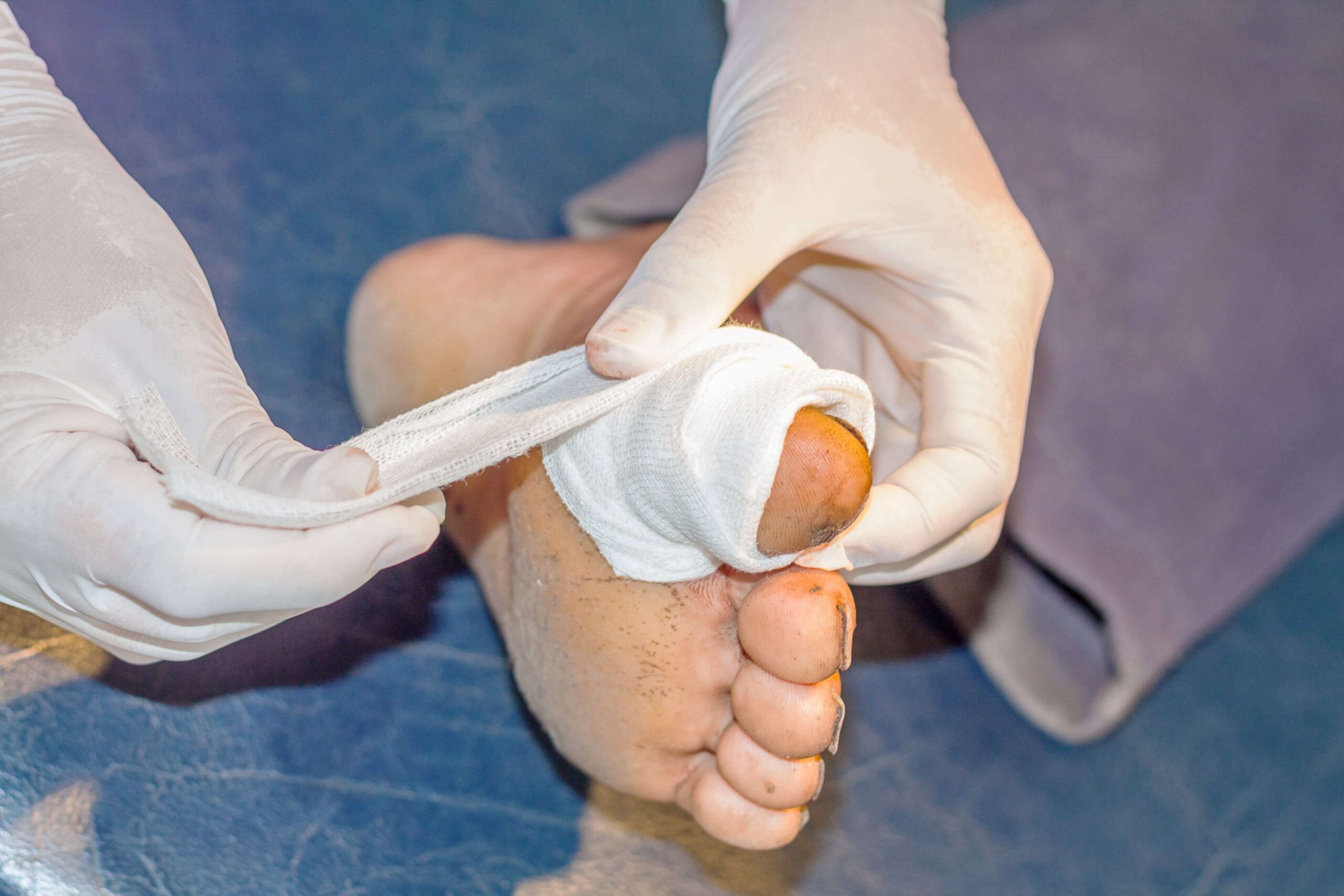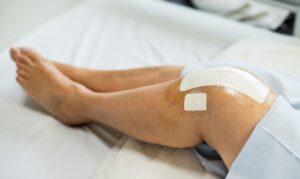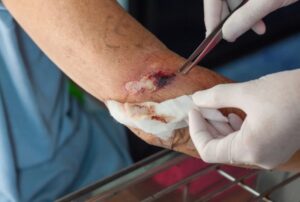Non-healing foot wounds are a common but serious complication for individuals with diabetes. These wounds can result in infections, tissue damage, and significant reductions in mobility if not treated effectively. Left unchecked, these wounds may lead to amputations, making early intervention critical. Fortunately, orthopedic treatments can play a crucial role in managing these wounds, preventing complications, and restoring quality of life.
At Tec Orthopedics, we specialize in treating non-healing foot wounds in diabetic patients through advanced therapies and a personalized care approach that focuses on infection management, tissue preservation, and enhancing mobility.
What Are Non-Healing Foot Wounds in Diabetes?
Non-healing foot wounds, or diabetic ulcers, occur when cuts, abrasions, or sores on the feet fail to heal properly. These wounds are often exacerbated by poor circulation and nerve damage, both of which are common in people with diabetes. The body’s reduced ability to heal due to compromised blood flow, combined with the heightened risk of infection, makes these wounds particularly dangerous.
When left untreated, diabetic foot ulcers can lead to more severe complications, such as infections that spread to bones or blood. If not properly managed, they can even result in amputation. Understanding these risks emphasizes the importance of seeking specialized treatment when dealing with non-healing foot wounds.
The Role of Orthopedic Treatment in Managing Foot Wounds
Orthopedic treatment plays a critical role in addressing non-healing foot wounds. The goal is to manage infection, preserve tissue, and encourage healing while restoring mobility. Orthopedic interventions often involve:
- Infection Management: Early detection and management of infection are key to preventing the spread of bacteria and reducing the risk of complications. Orthopedic surgeons utilize advanced diagnostic tools and treatments to identify infections and treat them effectively.
- Tissue Preservation: In some cases, the wound may require debridement, which is the removal of damaged or infected tissue. This promotes healing by exposing healthy tissue to the air and allowing better blood circulation.
- Mobility Restoration: Diabetic foot wounds can severely affect a patient’s ability to walk or even stand. Orthopedic treatments not only address the wound but also help restore mobility through the use of custom orthotics or footwear and physical therapy, ensuring patients can regain independence and resume their daily activities.
Advanced Therapies for Non-Healing Foot Wounds
In addition to basic treatments, advanced orthopedic therapies can accelerate the healing process and prevent further complications. These include:
- Debridement: This involves the removal of dead or infected tissue from the wound, which allows for new tissue growth and better healing.
- Negative Pressure Wound Therapy (NPWT): This therapy uses a vacuum dressing to promote healing by removing excess fluid and increasing blood flow to the wound area.
- Hyperbaric Oxygen Therapy (HBOT): This advanced treatment involves breathing pure oxygen in a pressurized chamber, which enhances the body’s ability to heal wounds by delivering more oxygen to the damaged tissues.
These advanced therapies, when combined with proper infection control and tissue preservation techniques, can significantly improve the healing process and reduce the risk of complications.
Preventing Complications and Future Wound Recurrence
Prevention is a cornerstone of orthopedic care for diabetic foot wounds. While treating an existing wound is important, minimizing the risk of future wounds and complications is equally crucial. Some key strategies include:
- Regular Foot Inspections: Diabetic patients should perform daily inspections of their feet to identify any potential issues early on. This includes checking for cuts, blisters, or calluses that could develop into more serious wounds.
- Proper Foot Care: Wearing proper footwear, keeping feet clean and moisturized, and avoiding excessive pressure on the feet can help reduce the likelihood of wounds.
- Diabetic Neuropathy Management: Since diabetes can cause nerve damage, regular monitoring and control of blood sugar levels are essential to reduce the risk of further nerve-related damage and wounds.
- Circulation Enhancement: Ensuring proper blood circulation through physical activity, compression therapy, and proper elevation can promote faster healing and prevent the recurrence of ulcers.
Restoring Mobility and Quality of Life
Beyond treating the wound itself, Orthopedic Treatment for Diabetes-Related Foot Infection wounds plays a pivotal role in restoring mobility and improving the overall quality of life. Diabetic patients with foot ulcers often face challenges in walking or standing for long periods. By addressing the underlying issues with orthopedic care, patients can regain their ability to move freely and return to their daily routines.
Restoring mobility can also have significant emotional and psychological benefits, as patients regain a sense of independence and normalcy. It’s not just about healing the wound—it’s about improving the patient’s life in its entirety.
Why Choose Tec Orthopedics for Foot Wound Treatment?
At Tec Orthopedics, we understand that dealing with non-healing foot wounds in diabetes requires a compassionate, multidisciplinary approach. Our expert team of orthopedic specialists uses the latest technology and personalized treatment plans to ensure optimal healing outcomes. Whether it’s through infection management, advanced wound therapies, or mobility restoration, our focus is on improving your quality of life and helping you return to the activities you love.
Takeaway
Non-healing foot wounds are a common yet serious issue for individuals with diabetes, but with the right orthopedic treatment, healing is possible. Early intervention, advanced therapies, and ongoing care are crucial for managing these wounds, preventing complications, and restoring mobility. If you or a loved one is dealing with non-healing foot wounds, contact Tec Orthopedics today to learn more about our specialized care options.






